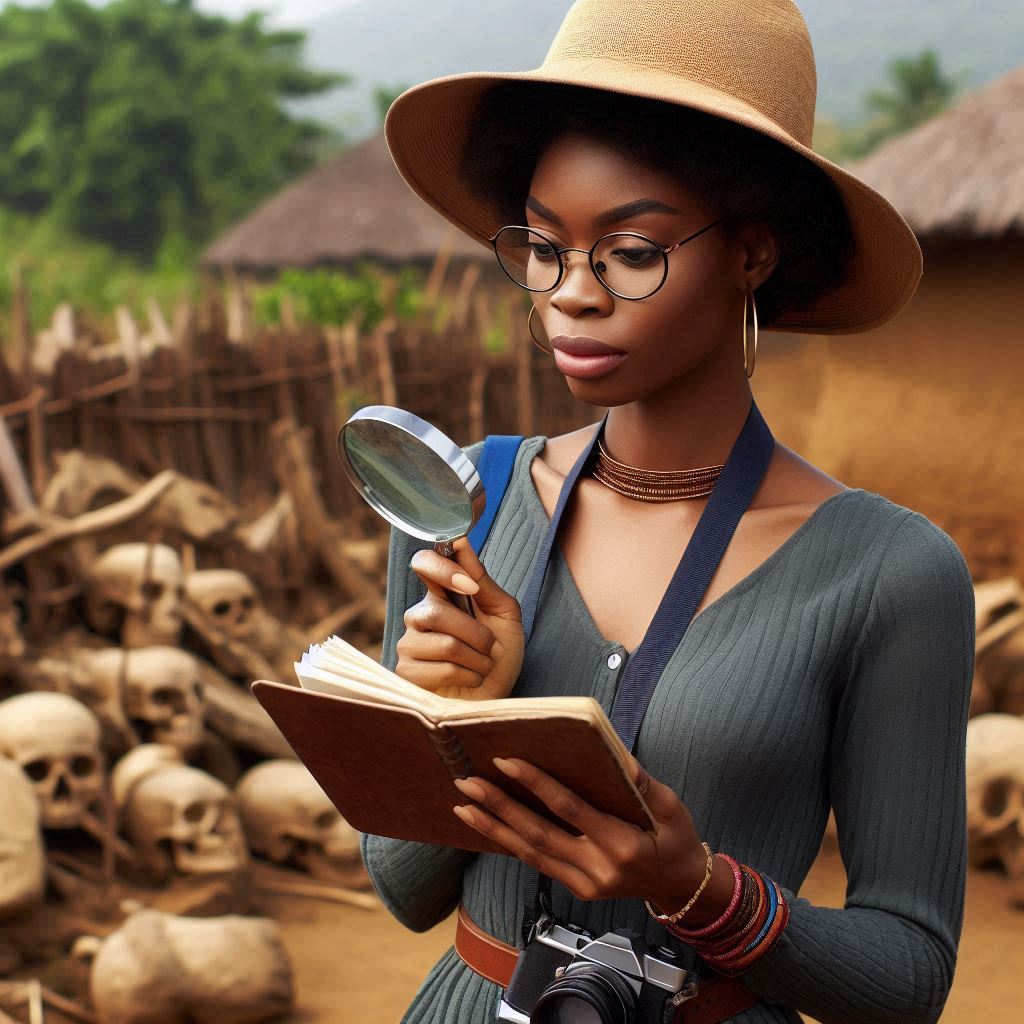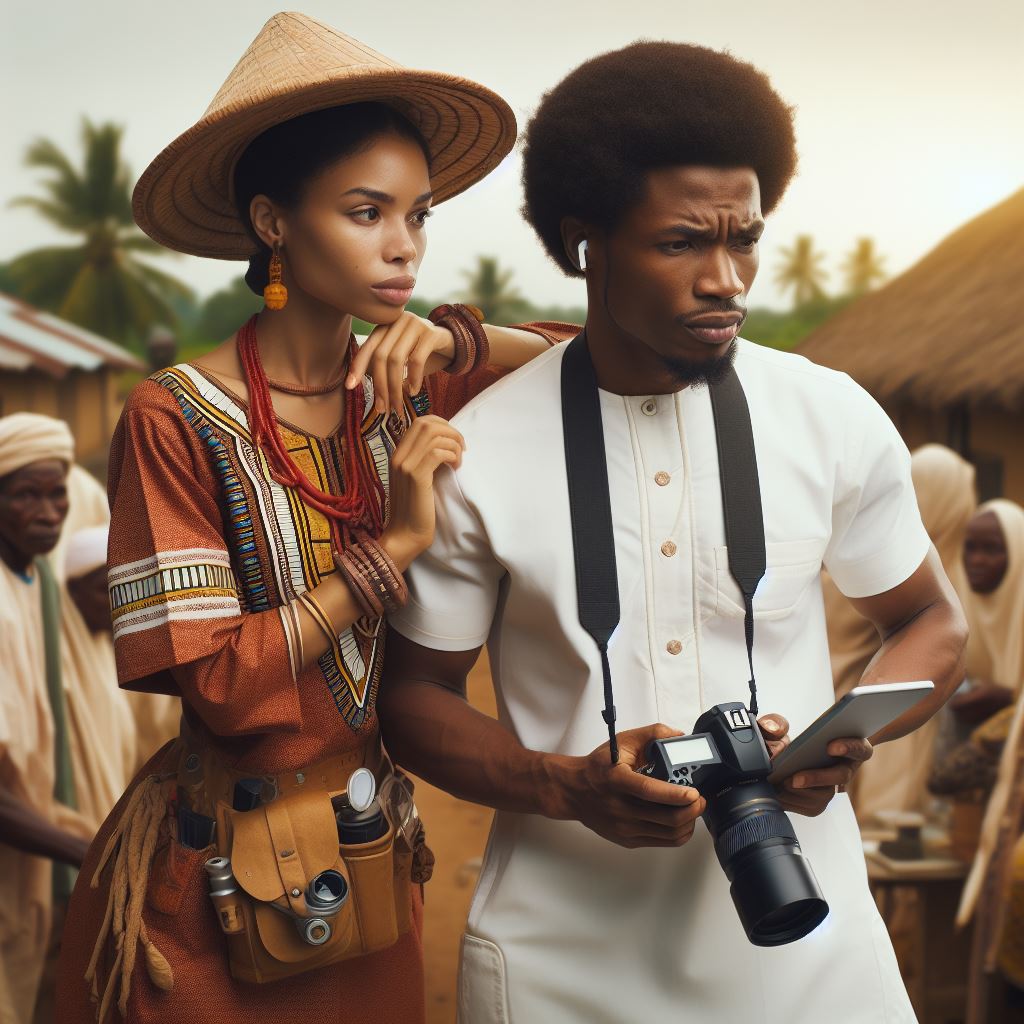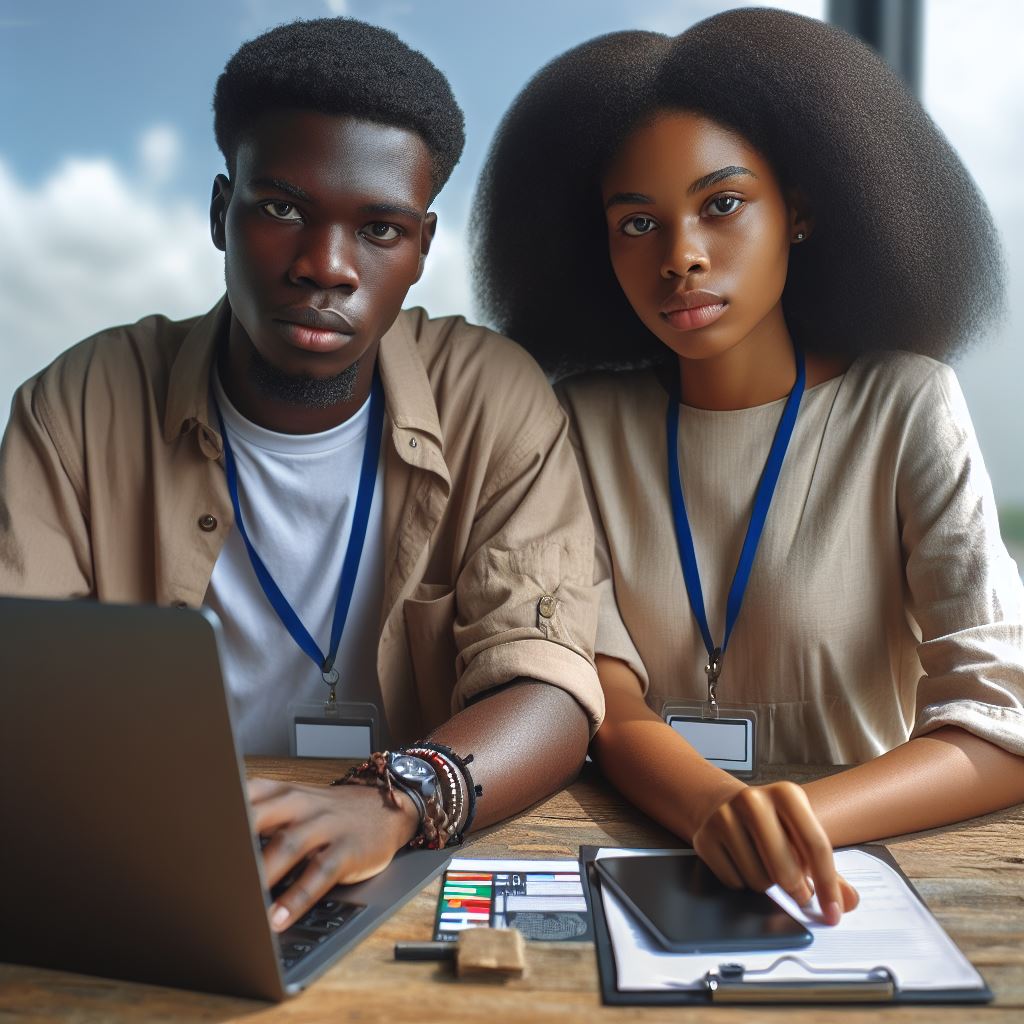Introduction
Nigerian folklore brims with rich tales, legends, and cultural traditions. Rooted in the diverse ethnic groups of Nigeria, these stories reflect the country’s vibrant heritage. Exploring these tales through anthropology uncovers deep cultural meanings and societal values.
Nigerian Folklore
Nigerian folklore includes myths, proverbs, and rituals from over 250 ethnic groups. Common themes involve gods, spirits, and ancestral heroes. These stories pass down wisdom and preserve cultural identity.
Importance of Anthropology
Anthropology provides a systematic approach to studying folklore. It helps us understand the context and significance of these tales. By examining rituals and narratives, anthropologists reveal how folklore shapes social norms and beliefs.
Thesis Statement
This section explores:
- The role of folklore in Nigerian culture.
- Anthropological methods in studying folklore.
- Insights gained from analyzing Nigerian folklore.
Through this exploration, we uncover the profound impact of folklore on Nigerian society and its enduring legacy.
Historical background of Nigerian folklore
Nigeria has a rich tapestry of folklore that dates back centuries, woven into the fabric of its diverse cultures.
Origin and evolution of folklore in Nigeria
The origins of Nigerian folklore can be traced back to the traditional beliefs and practices of various ethnic groups.
Over time, these stories and myths have evolved, adapting to the changing social and cultural landscape of Nigeria.
Influence of different ethnic groups on Nigerian folklore
Nigeria is home to over 250 ethnic groups, each with its unique folklore traditions that have contributed to the rich tapestry of Nigerian folklore.
The Yoruba, Hausa, Igbo, and other ethnic groups have their folklore that reflects their beliefs, traditions, and values.
Examples of popular Nigerian folktales and myths
Nigerian folklore is filled with a wide array of captivating stories and myths that have been passed down through generations.
- The Tortoise and the Hare: A popular Nigerian folktale that teaches valuable lessons about patience and perseverance.
- The Creation Myth of the Yoruba: A myth that explains the origin of the world according to Yoruba beliefs.
- The Legend of Sango: A myth revolving around the powerful deity of thunder and lightning in Yoruba mythology.
- The Story of Queen Amina: A legendary warrior queen of the Hausa people known for her military prowess and leadership.
- The Mami Wata Legend: A popular myth about a mermaid spirit that is believed to bring good fortune and wealth.
These examples are just a glimpse of the diverse and captivating folklore that is an integral part of Nigerian culture.
Read: Global Impact of African and Asian Studies Research
Role of anthropology in studying Nigerian folklore
Definition of anthropology and its relevance to folklore studies
Anthropology is the study of human societies and cultures, making it essential in understanding folklore as a cultural expression.
Methods used by anthropologists to study folklore
Anthropologists employ various methods such as fieldwork, participant observation, interviews, and archival research to study Nigerian folklore.
Contributions of anthropology to understanding Nigerian culture through folklore
Anthropology helps uncover the meanings, functions, and origins of Nigerian folklore, shedding light on cultural practices, beliefs, and values.
Anthropologists play a crucial role in studying Nigerian folklore, as they provide valuable insights into the rich cultural traditions of the country. Through their rigorous research and analysis, anthropologists contribute to a greater understanding of Nigerian culture and heritage.
One key aspect of anthropology in studying Nigerian folklore is its focus on the oral traditions of different ethnic groups.
By collecting and analyzing myths, legends, proverbs, and songs, anthropologists can uncover the unique stories and beliefs that have been passed down through generations.
Furthermore, anthropology helps to contextualize Nigerian folklore within the broader cultural and historical landscape of the country.
By studying folklore in relation to other cultural practices, social structures, and historical events, anthropologists can gain a deeper understanding of its significance and meaning.
Another important contribution of anthropology to the study of Nigerian folklore is its emphasis on community participation and collaboration.
Anthropologists work closely with local communities to document, preserve, and interpret their folklore, ensuring that it remains a vital part of Nigerian cultural heritage.
In essence, anthropology plays a vital role in studying Nigerian folklore by providing valuable insights into the cultural traditions, beliefs, and values of the country.
Through their research and analysis, anthropologists help to preserve and promote Nigerian folklore, ensuring that it continues to be an integral part of the country’s cultural identity.
Read: Language Learning in African and Asian Studies
Cultural significance of Nigerian folklore
- Nigerian folklore plays a crucial role in preserving the cultural heritage of the diverse Nigerian ethnic groups.
- It serves as a means of passing down traditional knowledge, customs, and beliefs from generation to generation.
- The oral traditions embedded in Nigerian folklore are a reflection of the rich history and cultural identity of the people.
Connection between folklore and cultural identity
- Nigerian folklore serves as a symbolic expression of the values, norms, and practices that define the society.
- It reinforces a sense of belonging and solidarity among community members, strengthening their cultural identity.
- The myths, legends, and folk tales convey the shared history and experiences of the Nigerian people, shaping their identity.
Transmission of values and beliefs through folklore
- Nigerian folklore serves as a moral compass, imparting ethical lessons and values to the younger generation.
- Through stories and proverbs, folk tales teach societal norms, codes of conduct, and moral principles.
- The values promoted in folklore promote unity, respect for elders, hospitality, hard work, and honesty among Nigerians.
Impact of colonialism and globalization on Nigerian folklore
- Colonialism disrupted the traditional oral transmission of folklore, leading to a loss of cultural practices and beliefs.
- Globalization has introduced new influences and narratives into Nigerian folklore, blurring the boundaries of traditional stories.
- Despite challenges, Nigerian folklore continues to evolve, adapting to modern contexts while preserving its cultural essence.
Read: Career Paths in Communication and Language Arts

Representation of folklore in Nigerian art and literature
Depiction of folklore themes in Nigerian art
Nigerian folklore is a rich tapestry of oral traditions, myths, legends, and beliefs that have been passed down through generations. These stories serve as a window into the cultural heritage of the Nigerian people and offer valuable insights into their worldview.
One of the ways that Nigerian folklore is represented is through art. Nigerian artists often depict folklore themes in their work, using vibrant colors and intricate designs to bring these stories to life.
From traditional masks and sculptures to contemporary paintings and installations, art serves as a powerful medium for exploring and celebrating Nigerian folklore.
For example, renowned Nigerian artist Ben Enwonwu’s sculpture “Anyanwu” draws inspiration from Igbo mythology, featuring a striking depiction of the sun goddess.
Similarly, Nike Davies-Okundaye’s textiles incorporate Yoruba folklore motifs, paying homage to the rich cultural heritage of her people.
Incorporation of folklore in Nigerian literature
In addition to visual art, Nigerian literature also plays a significant role in preserving and sharing folklore.
Writers such as Chinua Achebe, Wole Soyinka, and Chimamanda Ngozi Adichie have all incorporated elements of Nigerian folklore into their works, using these stories to explore complex themes of identity, tradition, and change.
Examples of Nigerian artists and writers who draw inspiration from folklore
Achebe’s novel “Things Fall Apart” is steeped in Igbo folklore, weaving traditional myths and proverbs into the narrative to create a vivid and authentic portrayal of pre-colonial Nigeria.
Soyinka’s plays, such as “Death and the King’s Horseman,” draw on Yoruba mythology to explore the clash between traditional beliefs and modernity.
In contemporary Nigerian literature, writers like Adichie continue this tradition by infusing their stories with folklore elements. Adichie’s novel “Half of a Yellow Sun” incorporates Igbo legends and folk songs, adding depth and richness to the narrative.
Overall, the representation of Nigerian folklore in art and literature provides a powerful lens through which to view and understand the cultural heritage of the Nigerian people.
By exploring these stories, artists and writers are able to celebrate their roots, challenge stereotypes, and create new possibilities for the future.
Read: Scholarships for Communication Arts Students in Nigeria
Uncover the Details: Notable Nigerian Historians and Their Contributions
You Might Also Like: The Future of Foreign Language Studies in Nigeria
Gain More Insights: Famous Nigerian Graduates in Communication Studies
Preservation and conservation of Nigerian folklore
Challenges faced in preserving traditional folklore
Preserving Nigerian folklore presents a multitude of challenges. One of the primary challenges is the rapid modernization and globalization that threatens to erode traditional cultural practices and beliefs.
As younger generations embrace Western culture, traditional storytelling and oral traditions are at risk of being lost.
Another challenge is the lack of resources and funding dedicated to preserving folklore. Many local communities do not have the means to invest in documenting and safeguarding their cultural heritage.
his results in a lack of structured efforts to preserve folklore for future generations.
Additionally, the oral nature of Nigerian folklore makes it susceptible to distortion or misinterpretation over time.
Without accurate documentation and archiving, there is a risk of losing the authenticity and richness of these stories.
Efforts by local communities and organizations to conserve folklore
Despite these challenges, there are several initiatives led by local communities and organizations to conserve Nigerian folklore.
Community elders play a crucial role in passing down stories and traditions to younger generations, ensuring the continuity of cultural heritage.
Local folklore festivals and events are organized to celebrate and showcase traditional customs, stories, and performances.
These events not only serve as platforms for preserving folklore but also raise awareness and appreciation for Nigeria’s rich cultural heritage.
Furthermore, non-profit organizations and cultural institutions work to collect, record, and archive folklore through various mediums such as books, recordings, and digital platforms. These efforts help preserve folklore in a tangible and accessible format for future generations.
Transform Your Career with Expert Guidance
Get personalized mentorship consulting that’s tailored to your unique path. Our expert advice is actionable and exclusive.
Get StartedRole of technology in documenting and safeguarding Nigerian folklore for future generations
Technology plays a significant role in documenting and safeguarding Nigerian folklore for future generations. Digital platforms and archives provide a means to store and access folklore materials, ensuring their preservation.
Digital storytelling tools allow for the creation of interactive and engaging platforms to showcase folklore in innovative ways. This not only attracts younger audiences but also ensures the longevity and relevance of folklore in the digital age.
Furthermore, social media and online platforms serve as avenues for sharing and promoting Nigerian folklore globally. This enables a wider audience to engage with and appreciate the richness of Nigerian cultural heritage.
Most importantly, the preservation and conservation of Nigerian folklore are essential to maintaining cultural identity and heritage.
Through collaborative efforts by local communities, organizations, and the use of technology, Nigerian folklore can be safeguarded for future generations to enjoy and learn from.
Conclusion
Ultimately, exploring Nigerian folklore through anthropology is crucial for understanding the rich cultural heritage of the country.
By delving into the myths, legends, and traditions of Nigeria, anthropologists can uncover valuable insights into the beliefs and practices of its people.
Studying Nigerian folklore also provides a unique opportunity to preserve and celebrate the diverse cultural expressions that have been passed down through generations.
Recap of the importance of exploring Nigerian folklore through anthropology
Through anthropology, we gain a deeper understanding of Nigerian traditions, beliefs, and cultural practices.
This knowledge helps us appreciate the complexity and beauty of Nigerian folklore, enriching our understanding of the country’s cultural identity.
Call to action for further research and appreciation of Nigerian folklore
It is essential to continue researching and studying Nigerian folklore to ensure its preservation and promote cultural appreciation.
We must engage with local communities and storytellers to learn more about their traditions and ensure their legacy continues to be shared.
Closing thoughts on the enduring legacy of Nigerian folklore in shaping cultural identity
Nigerian folklore plays a significant role in shaping the cultural identity of the country and its people.
By exploring and appreciating Nigerian folklore through anthropology, we can honor the legacy of our ancestors and celebrate the richness of our cultural heritage.




